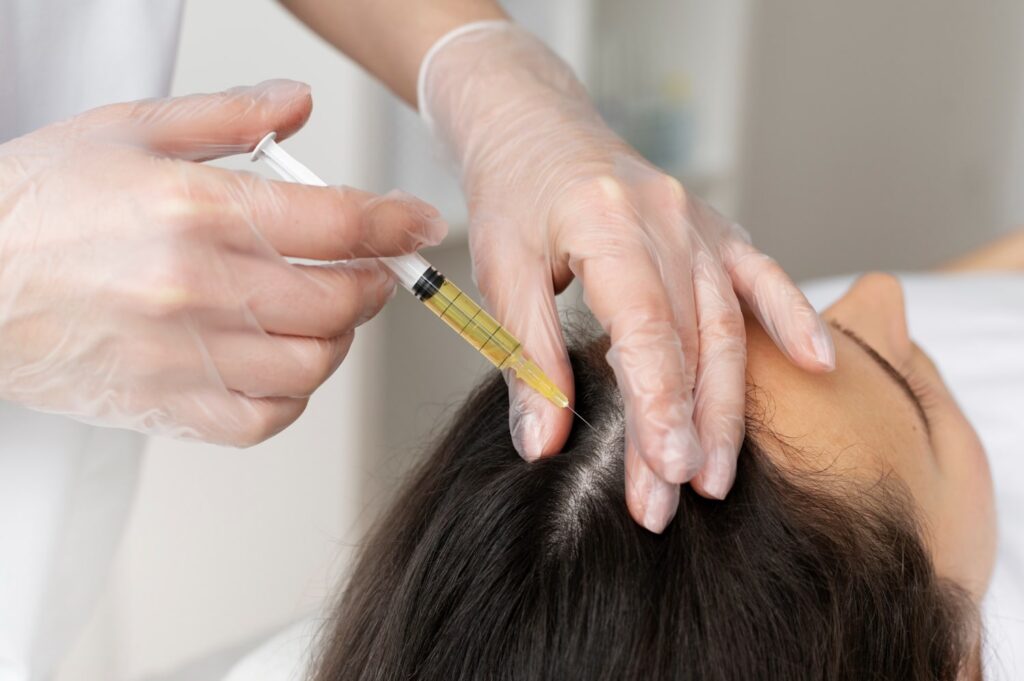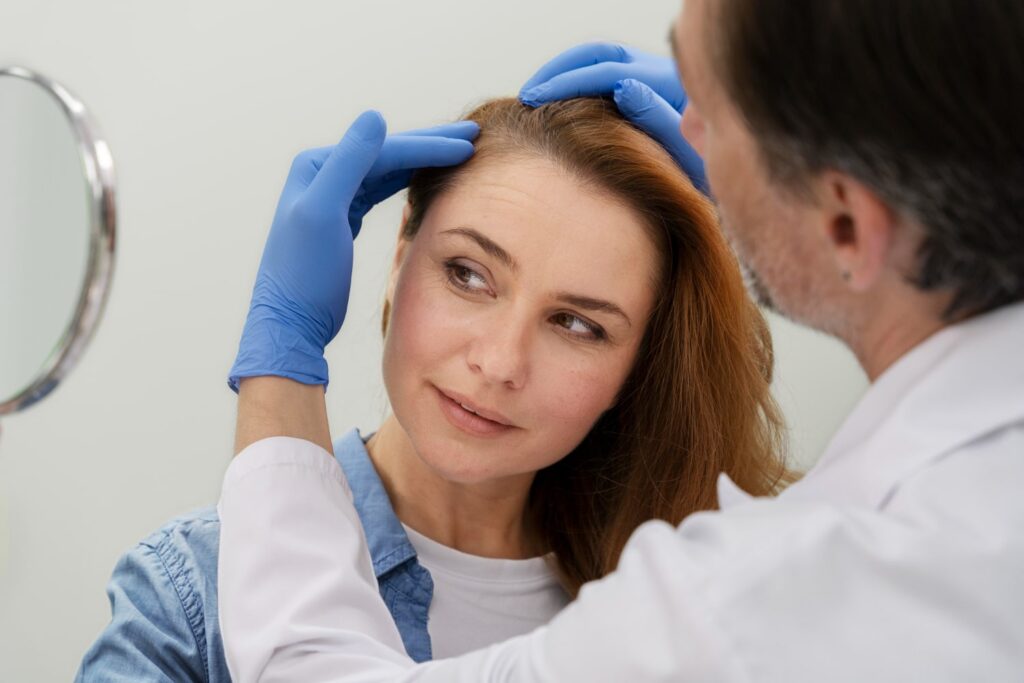Unlocking Hair Transformation: Exosomes in Trichology

Introduction:
In today’s fast-paced world, hair loss and hair disorders have become increasingly prevalent, affecting individuals of all ages and genders. These conditions can have a significant impact on self-esteem and overall well-being. Fortunately, advancements in trichology have led to groundbreaking discoveries, one of which is the application of exosomes in hair care. In this article, we will delve into the world of hair loss and hair disorders, explore the benefits of applying exosomes in trichology, and shed light on the transformative potential they hold for restoring healthy hair.
![]()
![]()
![]()
![]()
![]()

![]()
I. Understanding Hair Loss and Hair Disorders:
Types of Hair Loss:
- Androgenetic Alopecia: The most common type of hair loss, characterized by progressive thinning and miniaturization of hair follicles.
- Alopecia Areata: An autoimmune condition resulting in patchy hair loss.
- Telogen Effluvium: Temporary hair loss caused by physical or emotional stressors.
Hair Disorders:
- Scalp Conditions: Dandruff, seborrheic dermatitis, and scalp psoriasis.
- Hair Shaft Disorders: Trichorrhexis nodosa, monilethrix, and trichorrhexis invaginata.
II. Unveiling the Potential of Exosomes:
What are Exosomes?
- Exosomes are small extracellular vesicles secreted by various cells, including stem cells and keratinocytes.
- They contain growth factors, proteins, and nucleic acids that promote cellular communication and regeneration.
The Role of Exosomes in Hair Growth:
- Stimulating Hair Follicle Stem Cells: Exosomes enhance the proliferation and differentiation of hair follicle stem cells, facilitating hair growth.
- Anti-inflammatory Effects: Exosomes alleviate inflammation on the scalp, a common cause of hair loss.
- Angiogenesis Promotion: Exosomes aid in the formation of new blood vessels, improving nutrient supply to hair follicles.

III. The Benefits of Applying Exosomes in Trichology:
Non-Invasive Treatment:
- Exosome-based therapies are minimally invasive and involve topical application or injections, making them suitable for a wide range of patients.
Enhanced Hair Regeneration:
- Exosomes promote the regeneration of dormant or miniaturized hair follicles, leading to thicker and healthier hair growth.
Reduced Side Effects:
- Compared to traditional treatments, exosome-based therapies have minimal side effects, making them an attractive option for individuals seeking hair restoration without adverse reactions.
Accelerated Healing:
- Exosomes possess regenerative properties that facilitate wound healing and the repair of damaged hair follicles.
Potential for Personalized Treatment:
- The unique composition of exosomes allows for customization based on individual needs, offering a personalized approach to hair restoration.
IV. The Future of Exosome-Based Trichology:
Ongoing Research and Development:
- Scientists and trichologists are continuously exploring the potential of exosomes, optimizing their use and developing innovative therapies for various hair conditions.
Combination Therapies:
- Combining exosome-based treatments with other hair loss therapies, such as microneedling or platelet-rich plasma (PRP), may enhance their effectiveness and deliver more comprehensive results.
Conclusion:
As the field of trichology evolves, the application of exosomes emerges as a promising solution for hair loss and hair disorders. These tiny vesicles hold immense potential in stimulating hair growth, reducing inflammation, and promoting overall hair health. By harnessing the power of exosomes, trichologists can provide patients with non-invasive, effective, and personalized treatments. With the continued research and development in the field, exosome therapy for hair loss is expected to witness further advancements and refinements. This will allow trichologists to offer even more targeted and personalized treatments to address individual hair loss concerns.
It is crucial for individuals experiencing hair loss to consult with a qualified trichologist or healthcare professional to explore the potential benefits of exosome therapy and determine the most suitable treatment plan. Trichologists will be able to assess the underlying causes of hair loss, evaluate the individual’s unique needs, and recommend the appropriate course of action.
In conclusion, exosome therapy for hair loss represents a significant breakthrough in trichology. With its ability to stimulate hair growth, reduce inflammation, and promote overall hair health, exosomes hold great promise as a non-invasive and effective treatment option. As the field continues to advance, individuals struggling with hair loss can look forward to personalized and innovative solutions that harness the transformative power of exosomes. By working closely with trichologists and staying informed about the latest developments, individuals can take proactive steps towards restoring healthy and vibrant hair.